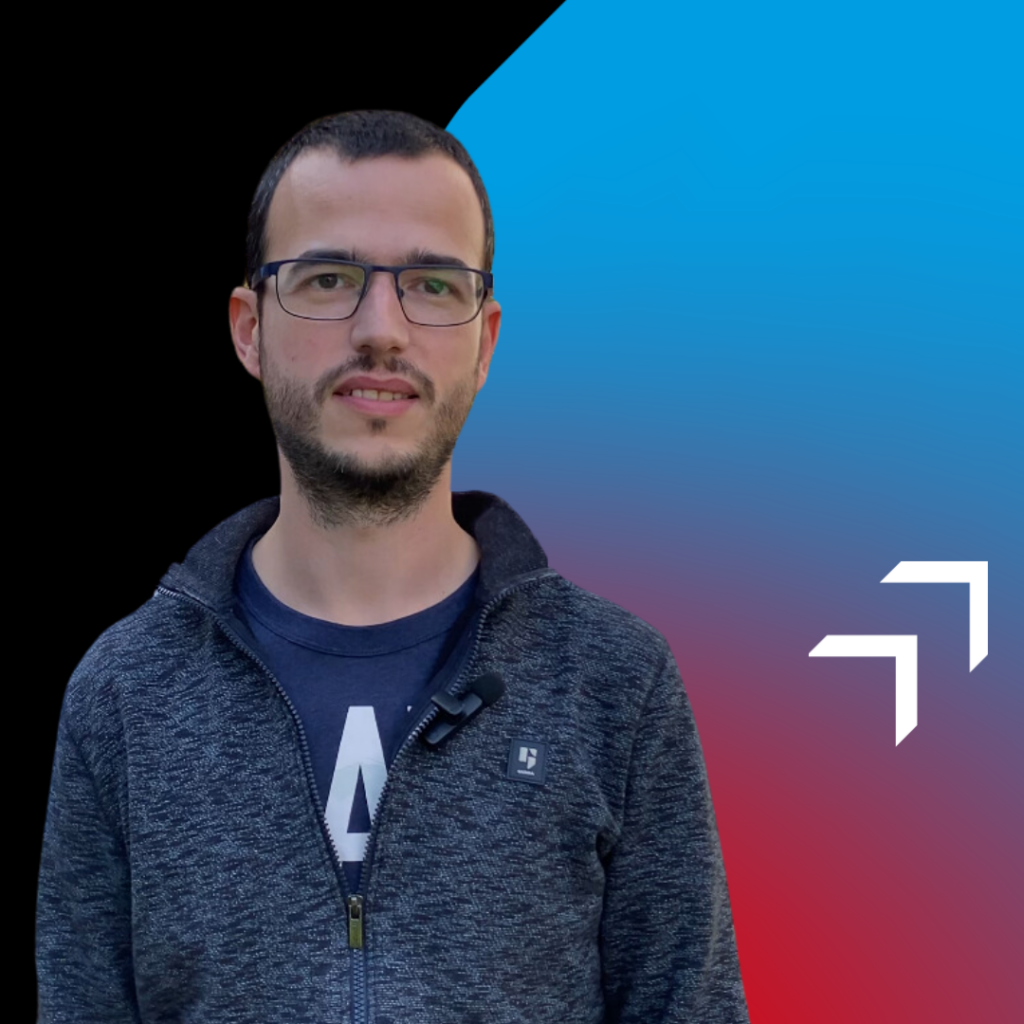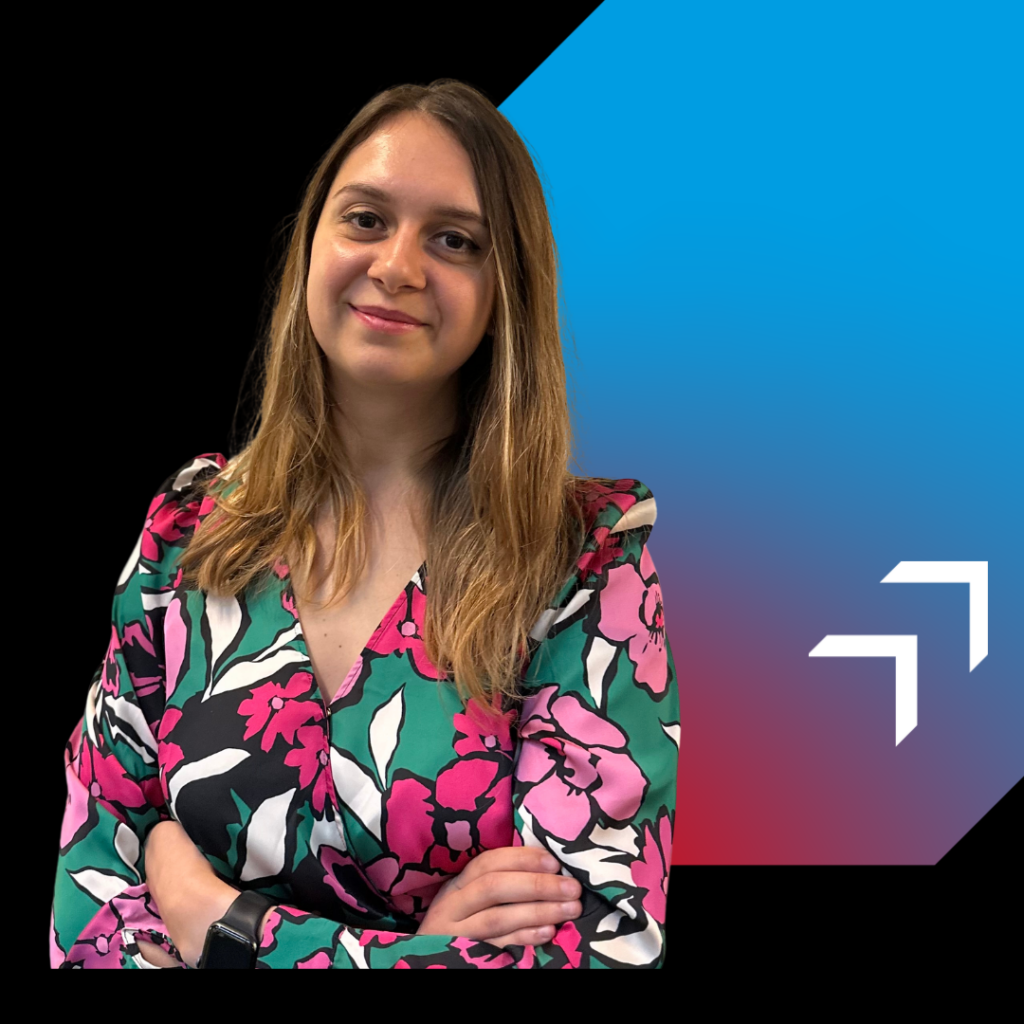In Conversation With Our Young Researchers: Katerine Saleme Ruiz
10 November 2023

Computational mechanics
By using mathematical and computational tools, we can better understand and predict the mechanical behaviour of materials. As computational mathematician, Katerine Saleme Ruiz wants to bridg the gap between applied mathematics and computer science, with the final goal to design better materials depending on the required application.
How can mathematics and computer science help design better materials? How does interdisciplinarity facilitate the tackling of cross-cutting issues?
Katerine Saleme Ruiz is a postdoctoral researcher at the Computer Science Department of the University of Luxembourg. As computational mathematician, she takes on a hybrid role bridging the gap between applied mathematics and computer science.
By using mathematical and computational tools, we can better understand and predict the mechanical behaviour of materials. In the fields of applied mathematics, computational mechanics and material science, Katerine’s PhD research focused on developing a discrete element model to understand fracture mechanisms affecting the microstructural and mechanical properties of brittle materials.
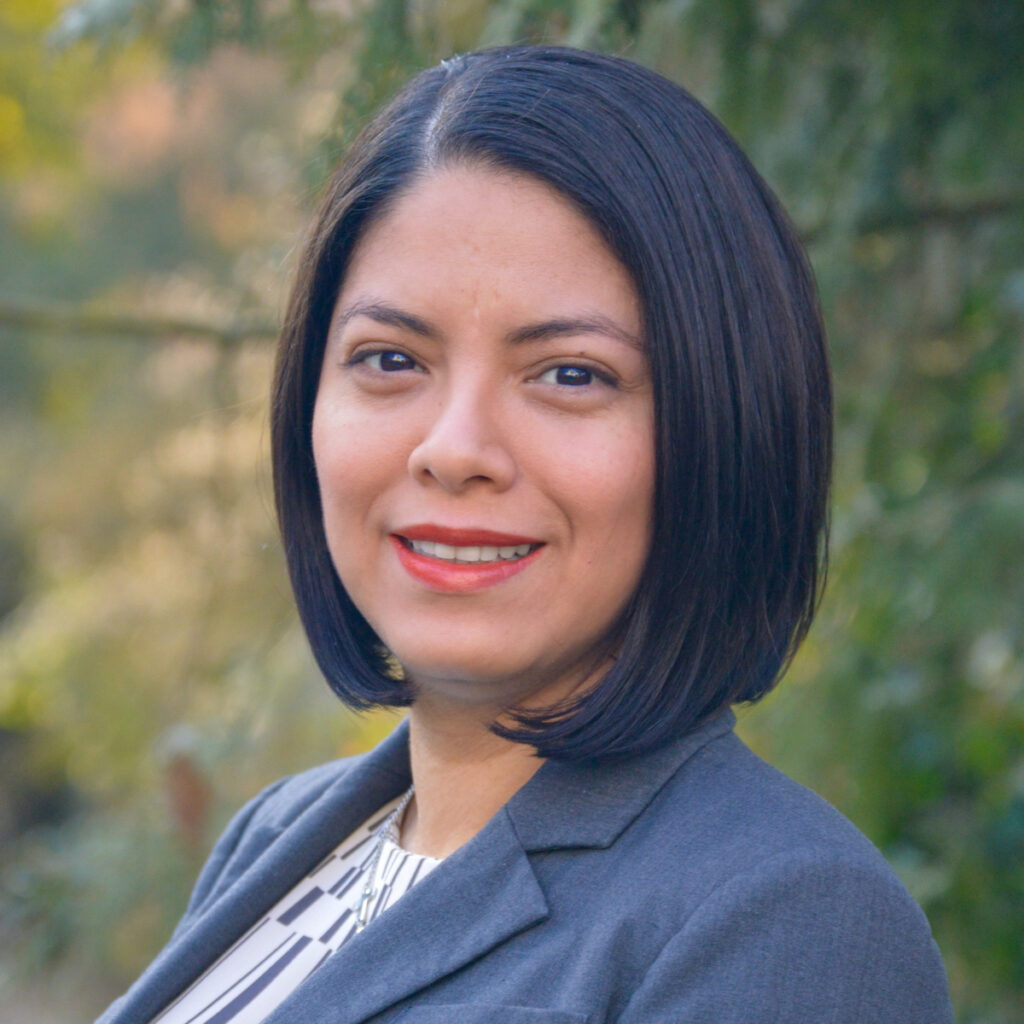
A key feature of the models I develop is the ability to simulate fracture as a function of microstructure features, which could be beneficial when attempting to design materials with specific mechanical responses.
Katerine Saleme Ruiz
The impact of Katerine’s work relies not only on understanding the physics and underlying mechanisms of materials, but also on providing tools with mathematical foundations to predict and design better materials depending on the required application.
The benefits of interdisciplinarity and collaborative research
Katerine Saleme Ruiz’s work spans several disciplines.
At the University, it is this interdisciplinarity that makes it possible to address these cross-cutting, multidisciplinary issues and to encourage innovative approaches and new perspectives.
To this end, the research institution is encouraging cooperation between different academic disciplines and exploiting the benefits of collaborative research.
uni.lu supports interdisciplinarity and collaboration by hosting many young and successful researchers who are open to exploring new connections between their work.
Katerine Saleme Ruiz
When she first joined the university, Katerine began working with two teams: one at the Physics and Material Science Department and one at the Engineering Department. The goal was to find a bridge between quantum-mechanical insights (on the Physics side) and material systems at the macroscopic scale (on the Engineering side).
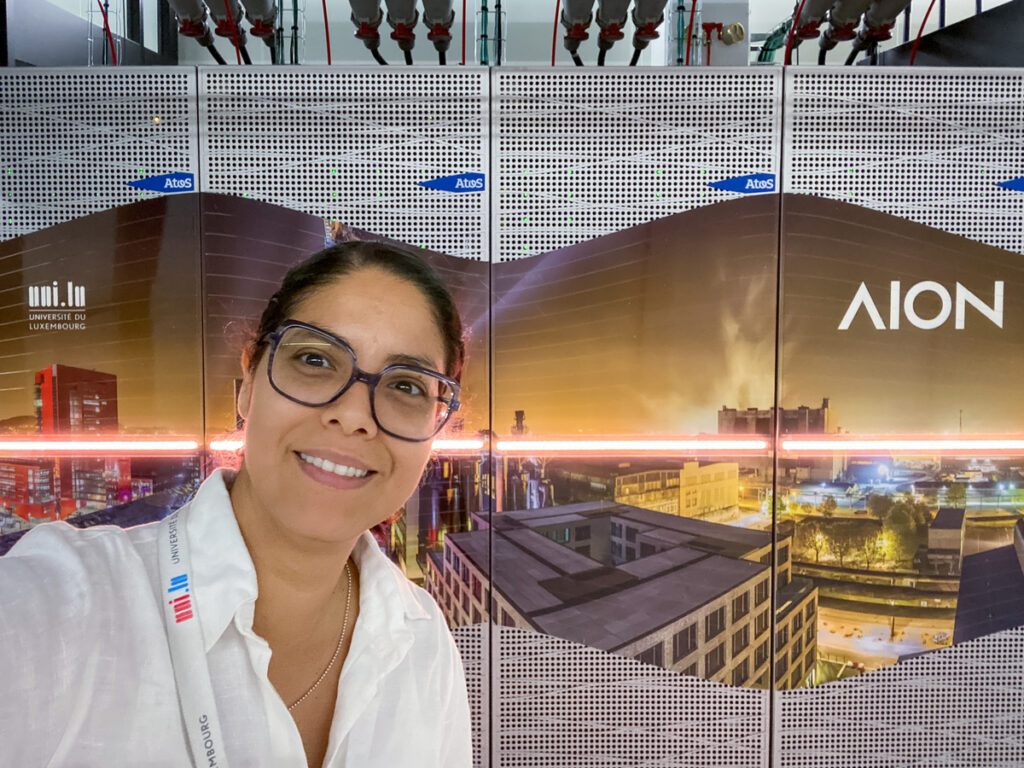
This was an ambitious and ‘one-of-a-kind’ project. In order to be successful, it required genuine collaboration and interdisciplinarity at its core, which we accomplished by taking advantage of the fruitful research environment provided by uni.lu, its infrastructure and technological resources for conducting research.
Katerine Saleme Ruiz
Researchers also benefit from the collaborations Luxembourg research ecosystem fosters with many other local and external entities in academia and industry. Currently, Katerine works with the HPC team lead by Professor Pascal Bouvry at uni.lu. She also collaborates with the team of research facilitators at the Faculty of Science, Technology and Medicine (FSTM), and with several researchers in the USA.
At the centre of a vast international research ecosystem
Katerine Saleme Ruiz was born and raised in Montería, Colombia. She received her B.S. and M.S. in Mathematics from the University of Córdoba and the Universidad Nacional de Colombia, respectively. In 2016, she earned her Ph.D. in Computational Engineering from Mississippi State University (MSU). She had postdoctoral appointments at both George Mason University (GMU) and the Institute for Pure and Applied Mathematics at UCLA in the USA, as well as at the University of Luxembourg.
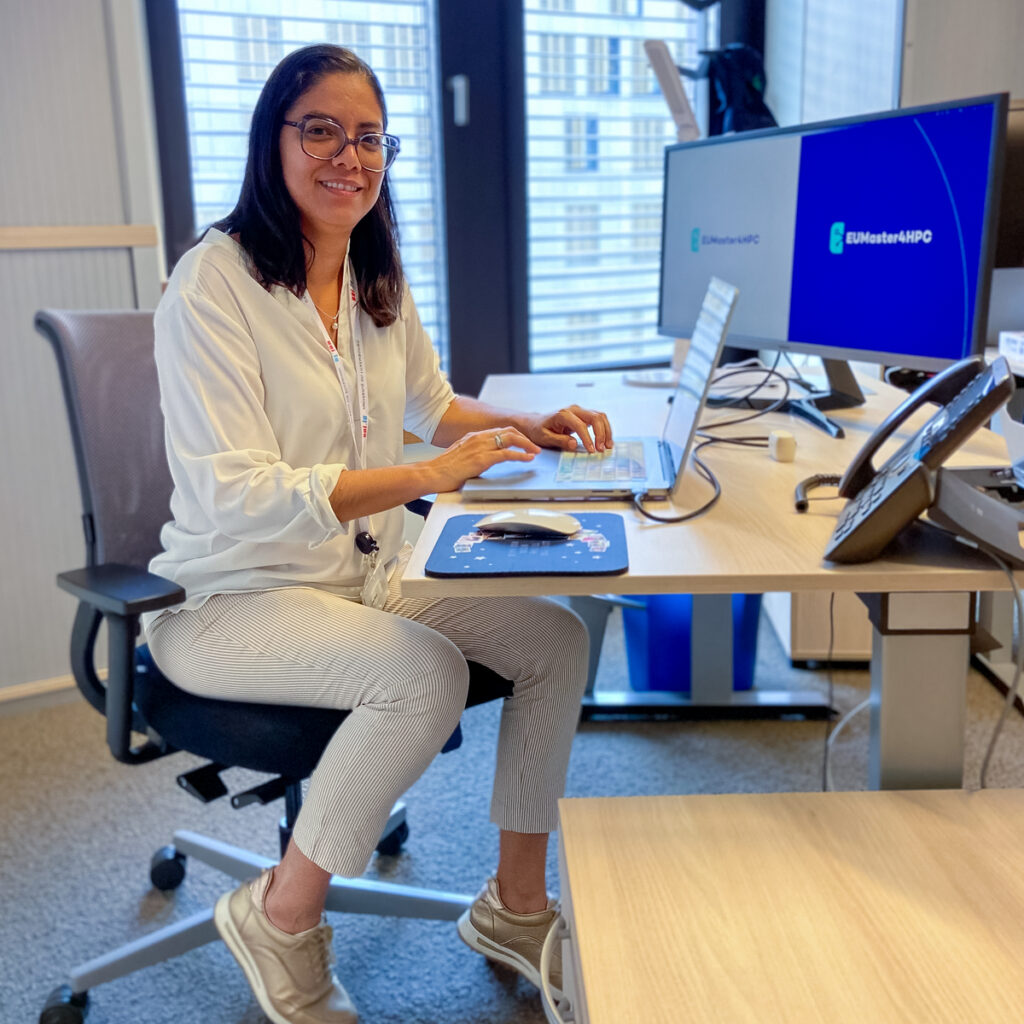
There were two reasons why I chose Luxembourg. First, for its geographical location, it is within easy reach of a number of research institutions. Second, and most importantly, it gave me the opportunity to work in an interdisciplinary and diverse team composed of many scientists with different backgrounds
Katerine Saleme Ruiz
In the department of Computer Science, Katerine also serves as project manager of the EUMaster4HPC, an HPC European consortium leading educational activities, funded by the EuroHPC Joint Undertaking to design and implement the first pan-European High Performance Computing (HPC) Masters programme.
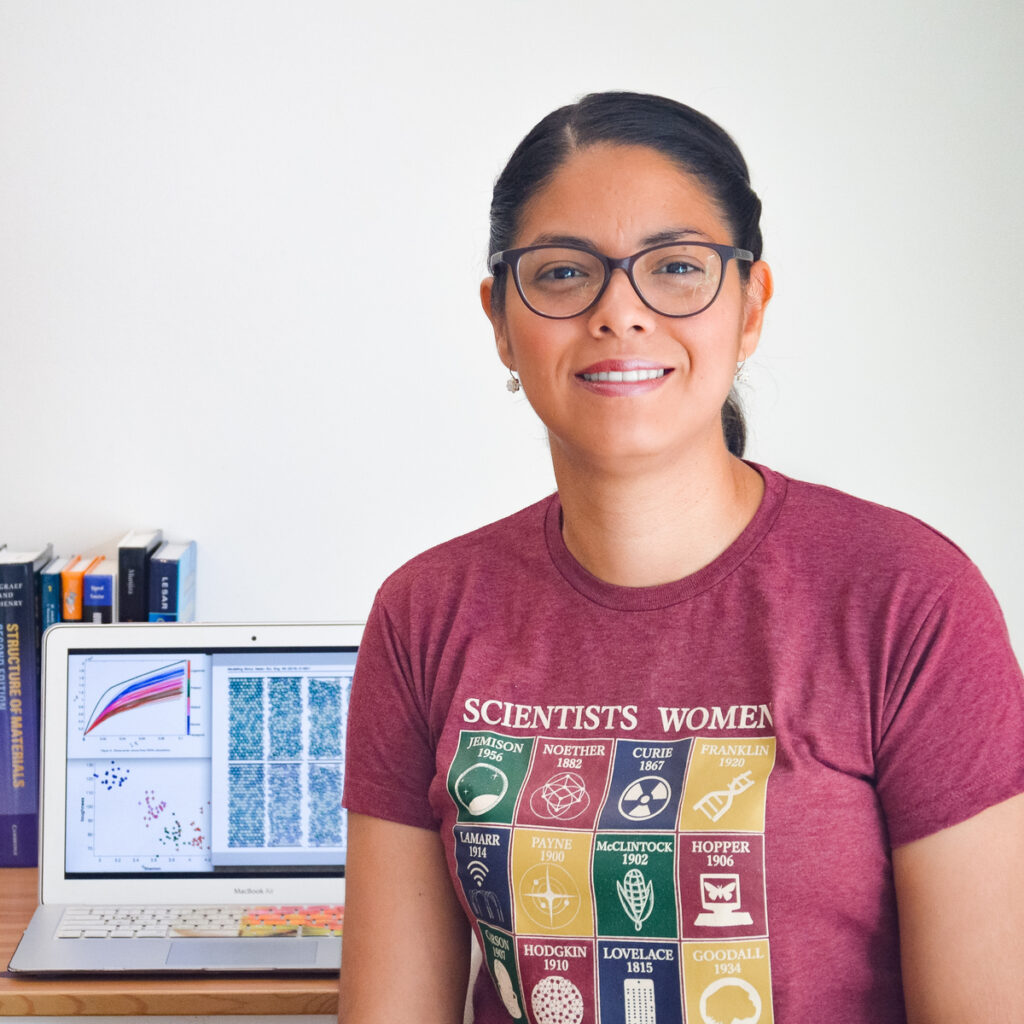
Through my career, I am also committed to empowering minorities, especially young women, which is why I have organised and actively participated in different workshops, seminars and outreach activities throughout my career, to engage them in science, mathematics and computer science.
Katerine Saleme Ruiz
Enjoying Luxembourg’s multicultural society
Luxembourg also offers great quality of life, making it easy for everyone to meet new people.
From Katerine’s point of view, the city is convenient and fun. She has access to great parks and restaurants, as well as trails for going hiking whenever she can. All university campuses can be reached in less than 30 minutes, making it easy to meet up with other researchers in person.
The two things I like most about Luxembourg are the people and the forests. I’ve met wonderful people, both professionally and personally, who make my life better every day.
Katerine Saleme Ruiz










